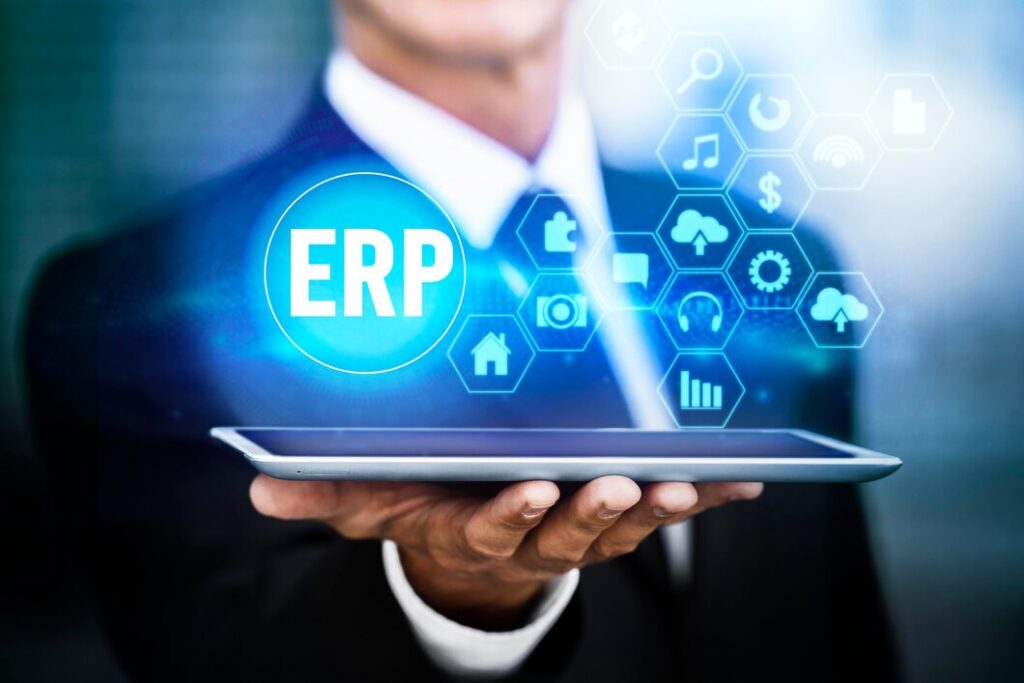
ERP Software for E-Commerce: Driving Growth and Efficiency in Online Retail
In the rapidly evolving e-commerce landscape, businesses face the challenge of managing a myriad of processes, from inventory and order fulfillment to customer service and financial reporting. Enterprise Resource Planning (ERP) software has emerged as a game-changer for e-commerce companies, offering integrated solutions to streamline operations and support growth. This article explores how ERP software can enhance e-commerce operations and highlights some of the best ERP solutions for online retail, including Talygen.
The Importance of ERP in E-Commerce
E-commerce businesses often operate across multiple channels and manage complex logistics, which can lead to fragmented processes and data silos. ERP software provides a unified platform to integrate various aspects of e-commerce operations, enabling businesses to:
- Optimize Inventory Management: ERP systems offer real-time inventory tracking and management, helping e-commerce businesses maintain optimal stock levels, reduce stockouts, and prevent overstocking.
- Enhance Order Fulfillment: With integrated order processing and fulfillment features, ERP systems streamline order management, automate shipping, and ensure timely delivery to customers.
- Improve Customer Service: ERP systems provide a centralized view of customer interactions, enabling businesses to deliver personalized service, manage returns, and resolve issues efficiently.
- Streamline Financial Management: Integrated financial tools in ERP systems help e-commerce businesses manage accounting, track expenses, and generate financial reports, ensuring accurate and timely financial management.
- Enable Data-Driven Decisions: Advanced analytics and reporting features offer valuable insights into sales trends, customer behavior, and operational performance, supporting data-driven decision-making.
Top ERP Solutions for E-Commerce
Here are some of the leading ERP software solutions that cater specifically to the needs of e-commerce businesses:
1. NetSuite
Overview: NetSuite is a cloud-based ERP solution that offers comprehensive tools for e-commerce businesses, including financial management, order processing, and inventory control.
Key Features:
- Integrated e-commerce capabilities for managing online stores
- Real-time inventory and order management
- Advanced financial reporting and analytics
- Customer relationship management (CRM) integration
- Scalable and customizable to fit growing e-commerce businesses
Why Choose NetSuite: NetSuite’s robust e-commerce features and cloud-based architecture make it a strong choice for businesses looking to integrate their online retail operations with financial and inventory management.
2. SAP Commerce Cloud
Overview: SAP Commerce Cloud is an enterprise-grade ERP solution designed to support complex e-commerce operations. It offers a range of tools to manage customer experiences, order fulfillment, and inventory.
Key Features:
- Omnichannel e-commerce capabilities for seamless customer experiences
- Advanced order management and fulfillment solutions
- Real-time inventory tracking and management
- Integration with SAP’s broader suite of ERP and CRM solutions
- Scalable and customizable to meet the needs of large e-commerce businesses
Why Choose SAP Commerce Cloud: SAP Commerce Cloud provides a comprehensive suite of e-commerce tools and integrates seamlessly with other SAP solutions, making it ideal for large enterprises with complex e-commerce requirements.
3. Odoo
Overview: Odoo is an open-source ERP solution with a modular approach, offering a wide range of applications tailored for e-commerce businesses, including sales, inventory, and accounting.
Key Features:
- Modular design allowing for customization and expansion
- Integrated e-commerce and sales management
- Real-time inventory and order processing
- Financial management and reporting tools
- Community and enterprise editions for different business needs
Why Choose Odoo: Odoo’s flexibility and modularity make it a great choice for e-commerce businesses seeking a customizable and cost-effective ERP solution. Its open-source nature allows for extensive tailoring to specific business needs.
4. Microsoft Dynamics 365 Commerce
Overview: Microsoft Dynamics 365 Commerce is a cloud-based ERP solution that combines e-commerce capabilities with broader business management features. It provides tools for managing online sales, inventory, and customer engagement.
Key Features:
- Unified e-commerce platform for online and in-store sales
- Integrated inventory and supply chain management
- Customer engagement and CRM integration
- Real-time analytics and reporting
- Seamless integration with other Microsoft Dynamics 365 applications
Why Choose Microsoft Dynamics 365 Commerce: Dynamics 365 Commerce offers a comprehensive e-commerce solution with integrated business management tools, making it suitable for businesses looking to unify their online and offline sales operations.
5. Brightpearl
Overview: Brightpearl is an ERP solution specifically designed for retail and e-commerce businesses. It provides an integrated platform for managing inventory, orders, and financials.
Key Features:
- End-to-end retail and e-commerce management
- Real-time inventory and order tracking
- Integrated financial management and reporting
- Automated workflows for order fulfillment and customer service
- Multi-channel support for online and offline sales
Why Choose Brightpearl: Brightpearl’s focus on retail and e-commerce makes it an ideal choice for businesses looking for an ERP solution tailored to the specific needs of online retail operations.
6. Talygen
Overview: Talygen is a versatile ERP solution that offers a range of features tailored to various business needs, including e-commerce. It provides comprehensive tools for project management, time tracking, and customer relationship management.
Key Features:
- Integrated project and task management
- Time tracking and billing functionalities
- Customer relationship management (CRM) tools
- Inventory and order management capabilities
- Financial management and reporting
- Customizable dashboards and reports
Why Choose Talygen: Talygen’s robust suite of features and customization options make it a valuable addition to any e-commerce business. Its comprehensive project management and CRM tools help streamline operations, improve customer interactions, and enhance overall efficiency.
How to Choose the Right ERP for Your E-Commerce Business
Selecting the right ERP solution for your e-commerce business requires careful consideration of several factors:
- Integration Capabilities: Ensure the ERP system integrates seamlessly with your e-commerce platform, payment gateways, and other business systems.
- Scalability: Choose an ERP solution that can grow with your business and adapt to increasing sales volumes and expanding operations.
- Customization: Look for an ERP system that offers customization options to fit your unique business processes and requirements.
- User Experience: Consider the ease of use and user interface of the ERP system to ensure it aligns with your team’s needs and capabilities.
- Support and Training: Evaluate the level of support and training provided by the ERP vendor to ensure your team can effectively utilize the system.
Conclusion
ERP software is a powerful tool for enhancing e-commerce operations, offering integrated solutions to manage inventory, orders, customer service, and financials. By selecting an ERP system tailored to your business needs, such as NetSuite, SAP Commerce Cloud, Odoo, Microsoft Dynamics 365 Commerce, Brightpearl, or Talygen, you can streamline your e-commerce processes, improve efficiency, and drive growth. Whether you’re a small online retailer or a large e-commerce enterprise, the right ERP software will empower you to stay competitive and succeed in the fast-paced world of online retail.



